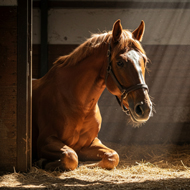Report reveals rise in ‘fake animal rescues’
Fake animal rescue accounts generate revenue from social media interaction.
The Social Media Animal Cruelty Coalition (SMACC) has published a new report, which reveals a concerning rise in fake animal rescue videos.
The content, which often sees animals intentionally harmed or put in danger, is published to generate revenue for the social media accounts, at the expense of animal welfare.
In these videos, animals will often appear to be abandoned, trapped or attacked by predators. The content creator will then appear to rescue them from the situation. It is unclear what happens to the animals after the ‘rescue’.
These images and videos attract millions of views, generating the account revenue through interactions such as ‘likes’ and ‘shares’. Some content will include an appeal to viewers to make a direct donation.
The report from SMACC, Spot the Scam: Unmasking Fake Animal Rescues, found that the animals being ‘rescued’ most commonly were kittens, puppies and young monkeys.
The majority of this content (47.7 per cent) was found on Facebook. The most common theme was animals which had been supposedly ‘abandoned’ – with 30.9 per cent of posts across all platforms following this theme.
The coalition, consisting of 29 organisations including Born Free, is calling for action to tackle fake rescue content and protect the animals featuring in the videos.
SMACC has particularly appealed to the companies behind the social media platforms Facebook, Instagram, TikTok, X and YouTube. It has provided these companies with clear and detailed guidance to identify the ‘rescues’ which have been faked.
It is also working with members of the public to make sure they are not unknowingly increasing the problem by engaging with the content.
Social media users are asked to not intentionally watch, share or engage with this content. This includes disliking the post or writing comments condemning the practice.
Any interactions with the posts increase their popularity and, in many cases, their profitability.
Mark Jones, head of policy at Born Free, said: ‘Spot the Scam: Unmasking Fake Animal Rescues’ exposes the scale of this issue and the extreme suffering and distress inflicted on the affected animals, who are often repeatedly abused for the purpose.
“This detailed and sobering report must act as a long-overdue wake-up call for social media platforms to ensure such content is identified and taken down without delay, in order to disincentivise the perpetrators from creating such vile content.”
The uncensored report, which contains some graphic images, can be found here. Alternatively, view the censored report here.
Image © Shutterstock



 Zoetis UK has called on horse owners to complete a short online survey about their horse's behaviours.
Zoetis UK has called on horse owners to complete a short online survey about their horse's behaviours.